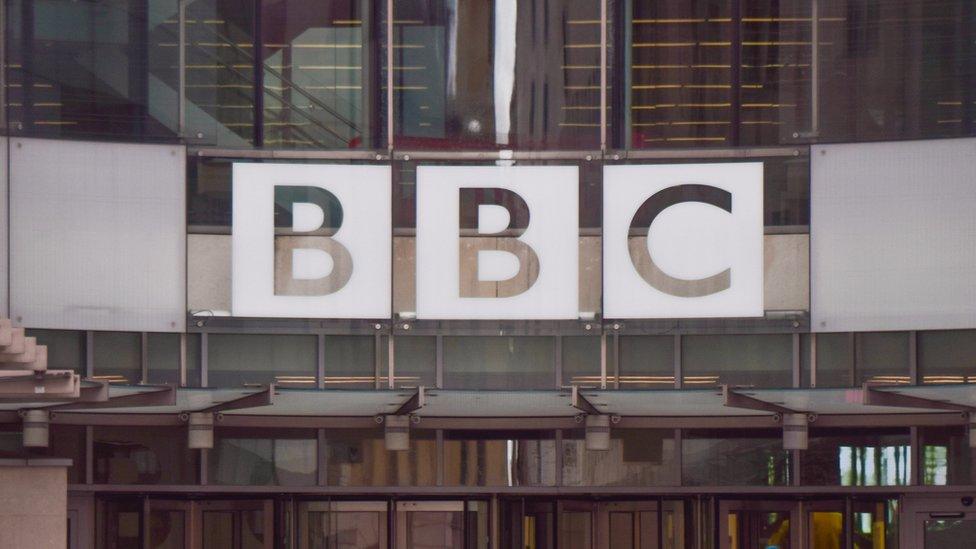What does the future hold for local commercial radio?
- Published
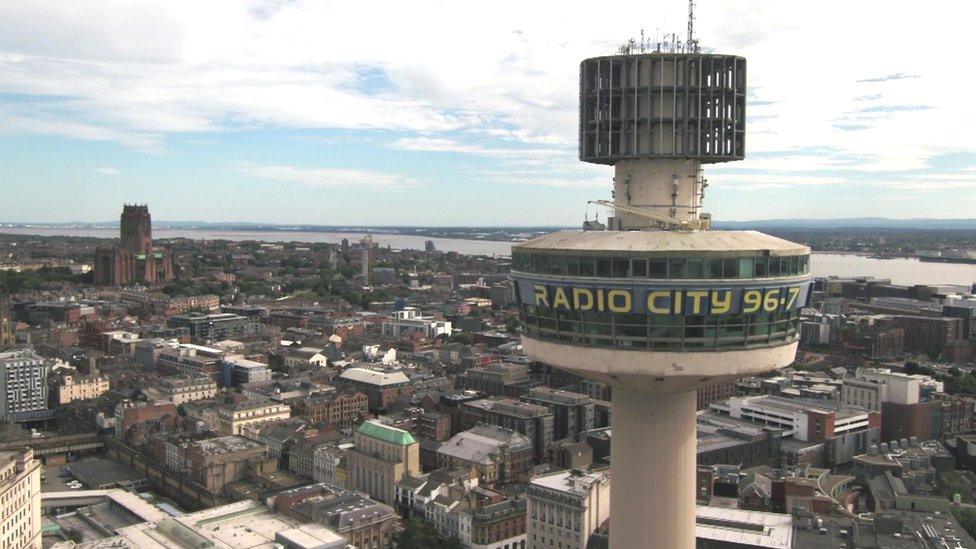
St John's Beacon is widely known in Liverpool as Radio City Tower
Threatened by a rise in social media, podcasting and music streaming, commercial local radio faces difficult challenges in a rapidly shifting media landscape.
Big names like Radio City in Liverpool, Metro Radio in Newcastle and Signal Radio in Staffordshire are about to disappear from the airwaves, with them coming together under a new national brand.
For many years a voiceover proudly proclaimed Radio City was broadcasting "450 feet above the skyline of Liverpool" from St John's Beacon in the heart of the city centre.
And for the last 24 years staffers perched at the top of the tower have been able to see much of their audience simply by looking out of the window.
Radio City is unusual because it has retained the name it first went on air with October 1974, the same year local commercial radio came to other big cities like Manchester, Birmingham and Newcastle, and one year after Capital Radio and LBC in London became the first licenced local commercial broadcasters in the UK.
Like many local commercial radio stations, Radio City would go on to be the most listened to in its broadcast area, often beating its national and BBC-run local competitors.
Liverpool-born Tony Snell presented on the station between 1984 and 1997 - a period which he said was "right at the height of Radio City and those massive audience figures".
"It was almost akin to being a footballer at the time, if you were on the radio in the mid-80s on a big radio station like Radio City," he said.
Snell said the loss of the Radio City brand was "like a relative leaving home in a funny kind of way [because] the name has been so ingrained in the city for so many years".
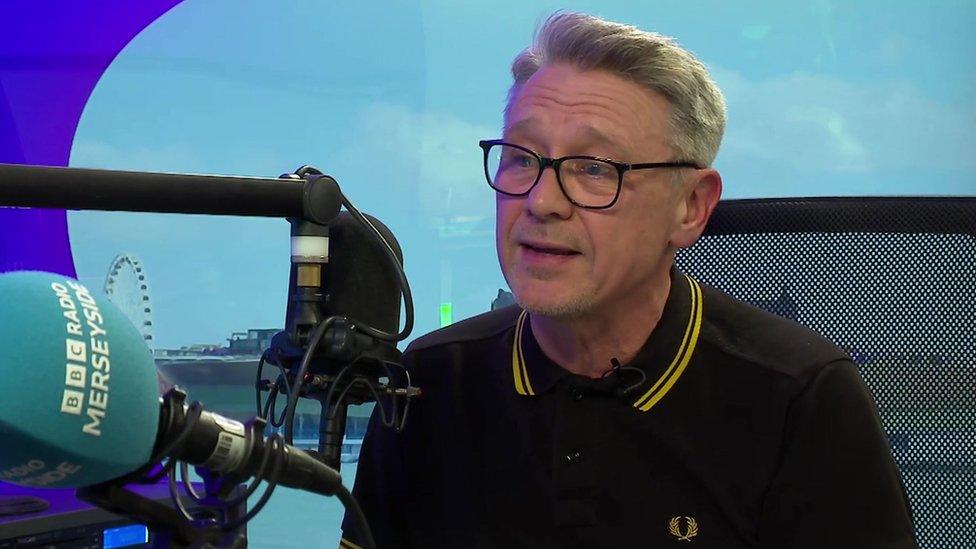
Tony Snell now presents on BBC Radio Merseyside
Radio City and 14 other stations owned by Bauer Media will from April be known as Hits Radio. It means nearly all of England's local commercial radio stations established in the 20th Century will have lost their local identities.
In recent years the competition from digital and online radio, podcasts, social media and music streaming has exploded exponentially.
Over the last 15 years, two companies - Global and Bauer - have gradually brought the local outlets they have acquired into nationally recognised brands like Heart, Capital, Smooth, Hits Radio and Greatest Hits Radio.
The few remainders are owned by a handful of smaller radio organisations.
"Commercial radio has been evolving for 50 years - it's never stayed the same," said Phil Riley, who now runs Boom Radio, a station aimed at older listeners.
Thirty years ago, the industry veteran set up the first Heart radio station in Birmingham.
The broadcast regulator Ofcom has played a big role in how the sector has evolved.
Since 2010, local commercial stations have been allowed to broadcast national output, with the exception of one three-hour slot.
The output of those three hours can be shared with the owner's other radio stations in the same region - such as the North West of England - although local news, weather and travel bulletins specific to each station are still mandatory.
It means Radio City now broadcasts national output shared with other radio stations owned by Bauer Media, with the exception of a four-hour Breakfast show broadcast from Liverpool but also heard on Rock FM in Lancashire.
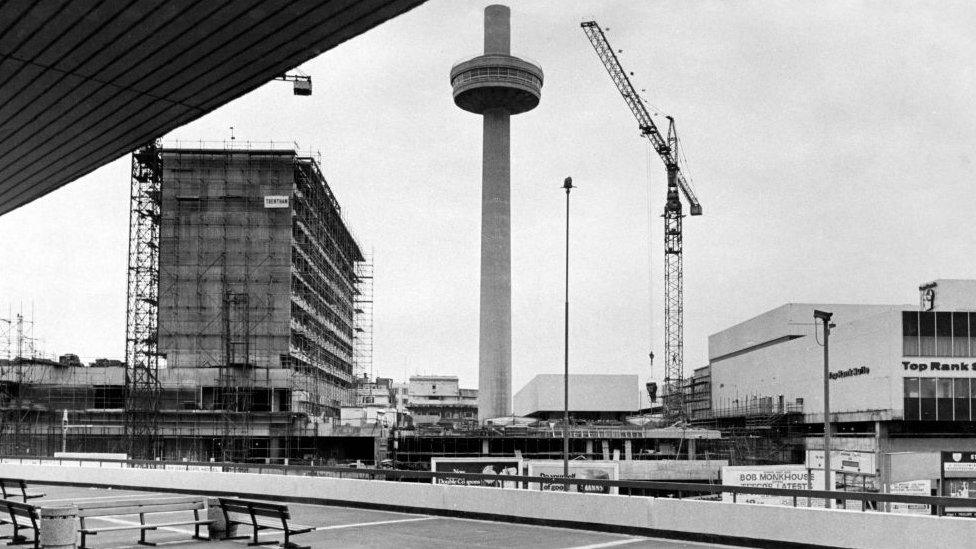
St John's Beacon has been a long-standing feature in Liverpool, pictured here in May 1970
"Local advertising is going online at an increasing rate of knots," said Mr Riley. "We're now at a point where the bigger radio groups need to martial all their resources to fight each other and one of the ways to do that is build these big national brands."
Meanwhile, the BBC has recently merged local radio stations' output during evenings, at weekends and, in most cases, on weekday afternoons.
It's part of a strategy that has seen the BBC allocate more resources to online news, on-demand content and podcasting.
Following rule changes in 2019, a wave of so-called "small-scale" commercial digital radio stations have sprung up in an attempt to increase "localness".
They broadcast to smaller areas - often individual towns - but don't have to provide local news, and not all presenters are paid.
Rob Charles used to be a presenter on Rock FM and Century Radio but now owns one of those new stations - Red Rose Radio.
Localness has "gone out of the window" at the bigger commercial radio companies, said Mr Charles, who now presents his station's Breakfast programme from a spare room in his house.
Like many of the new small-scale digital stations, Red Rose Radio has no building of its own, with all presenters sitting in home studios and logging into a computer system.
Mr Charles is convinced there is "still a marketplace" for local radio.
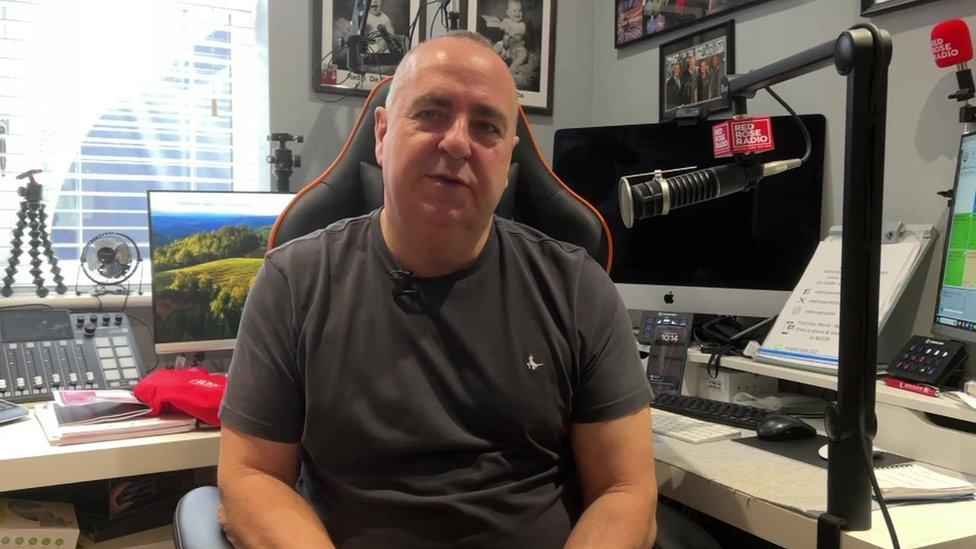
Rob Charles presents his Breakfast show from his spare room
"People who are on the radio station know what's going on in their area," he said, "as opposed to someone in London who doesn't know what's going on in Chorley, or Wigan, or anywhere."
Radio City owner Bauer said the rebrand would be a "new era" for Radio City, with the same amount of local content as now.
Hits Radio group programme director Gary Stein said "transforming into this nationally recognised brand" would ensure the station had "potential to grow".
Further change to local commercial radio is planned and is laid out in the government's Media Bill, currently being scrutinised in the House of Lords. It would allow all output to be shared nationally, as long as local news, weather and travel is retained.
Culture Secretary Lucy Frazer told MPs that would "reduce regulatory burdens and costs on commercial radio stations which are no longer needed due to the decisive shift towards digital listening".

Why not follow BBC Merseyside on Facebook, external, X, external and Instagram, external? You can also send story ideas to northwest.newsonline@bbc.co.uk, external
Related topics
- Published10 January 2024
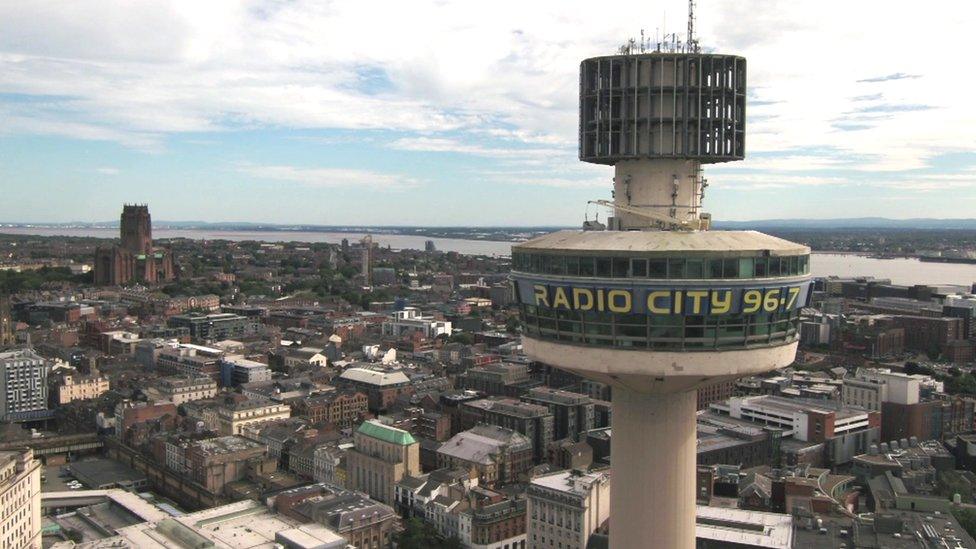
- Published10 January 2024
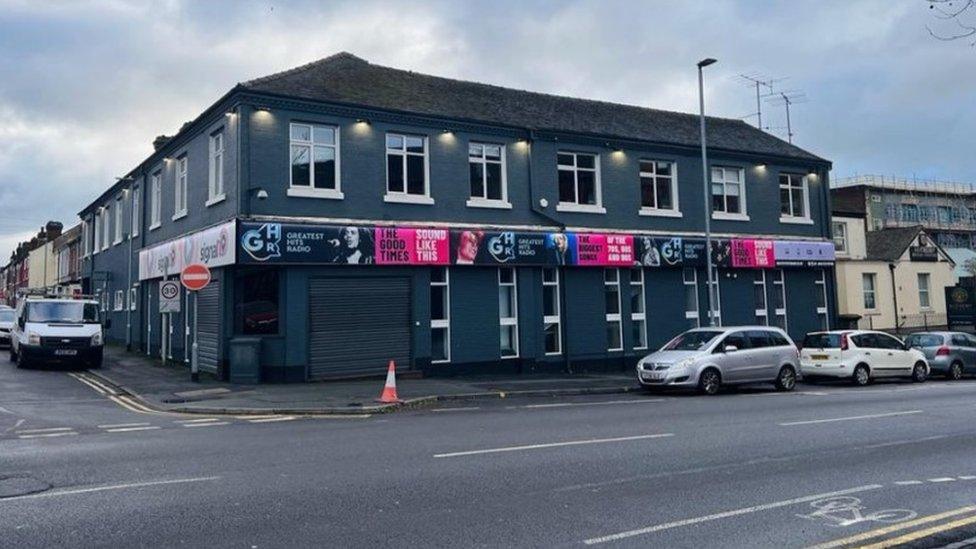
- Published31 October 2022
